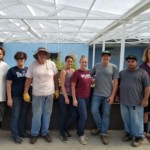
Property owners have a responsibility to ensure that their premises are safe for visitors, either by repairing potential hazards or posting appropriate warnings.
Many individuals sustain serious injuries due to dangerous property conditions. The most common cases our offices encounter are slip and falls or trip and fall injuries at restaurants or stores.
We have successfully handled many cases involving slips and falls, including claims made by a department store shopper who slipped on liquid from a broken snow globe, a homeowner who fell from her home’s second-story bedroom window due to a poorly designed wrought iron railing, and bicycle riders who fell and suffered serious injuries due to an unmarked speed bump and a raised utility manhole in a bike lane. Premises cases are very fact-specific.
For example, sometimes the lack of adequate lighting can play a role in turning an otherwise non-dangerous condition at the property into a dangerous condition at nightfall. Other times, the slipperiness of the flooring used at the property is important to establishing liability. In cases involving wet floors, the length of time the liquid was on the floor is crucial to proving the case.
Stores and restaurants usually carry a general liability insurance policy that will cover individuals injured on the premises. For injuries occurring on a private homeowner’s property, the homeowner’s insurance policy usually provides coverage. Not surprisingly, whenever a

premises liability claim is made, defenses to that claim routinely follow. The most common defense raised by the insurance company in these types of cases is the comparative fault of the injured plaintiff. Other common defenses are that the plaintiff was a trespasser and lacked permission to be on the property, or that the alleged dangerous condition was open and obvious.
In cases that involve a trip and fall over a rise in the sidewalk, the property owner typically raises the “trivial defect rule” as a defense.
The trivial defect rule dictates that the property owner is not liable for injuries sustained by an individual on the premises if reasonable people would conclude that the defect that caused them to fall was “trivial”.
This term was generally defined by case law as any change in height less than ¾”. However, recent appellate court opinions now require the court and jurors to consider more than the mere size of the defect in deciding liability.
It is important to consult with an attorney promptly about your premises liability case. Your attorney will know how to combat the many defenses raised by the insurance company and can locate, consult with, and retain appropriate expert witnesses in order to prove your case at trial.
If you or a loved one were injured due to a dangerous property condition, call Russell S. Kohn, Esq., of the Kohn Law Office at 760-721-8182 or Suzanne Skolnick, Esq., of the Skolnick Law Group at 760-585-7092 or email to [email protected] for a free initial consultation.


